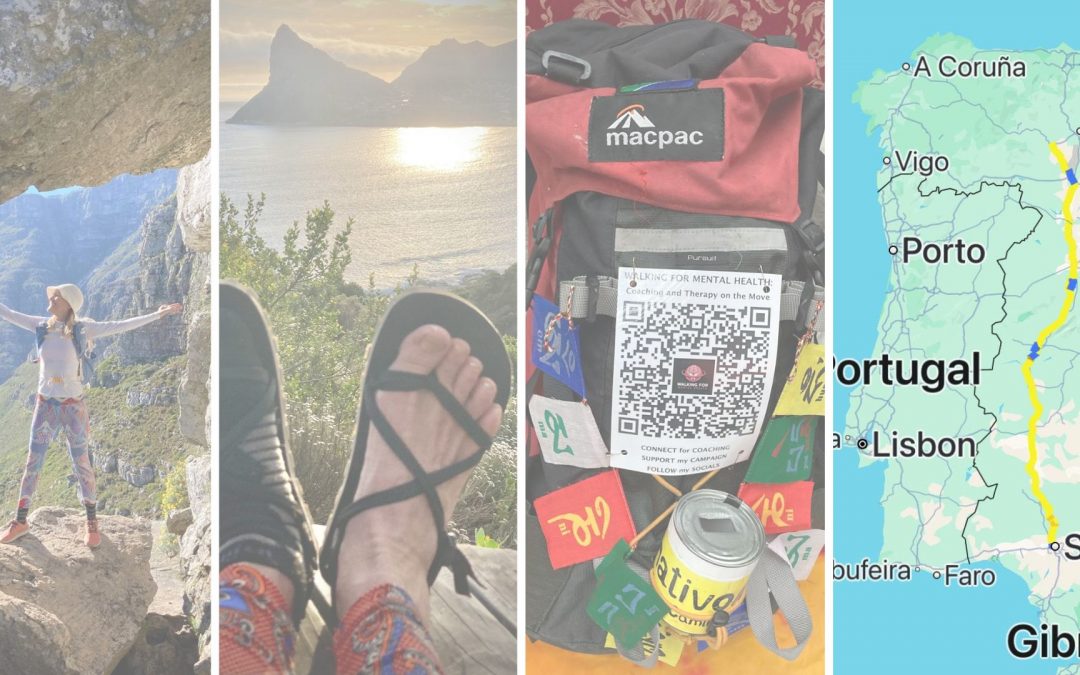On 17 September, Hout Bay therapist, coach and wilderness guide, Penelope van Maasdyk, will set out across northern Spain to walk up to 1,000km on the Camino de Santiago—linking the Del Norte, the Primitivo and sections of the Via de la Plata—by 30 October. Her mission, Walking for Mental Health, is to offer free on-trail coaching, walk-and-talk support, and craniosacral therapy to fellow pilgrims processing grief, change or trauma, while raising R55,000 to keep the journey safe and simple. Since launching her crowdfund on 5 August 2025, supporters have given R18,900 offline and R3,883 online—with six donors already stepping in. A QR code on her backpack will let anyone book time to walk beside her, talk, breathe, and begin again.
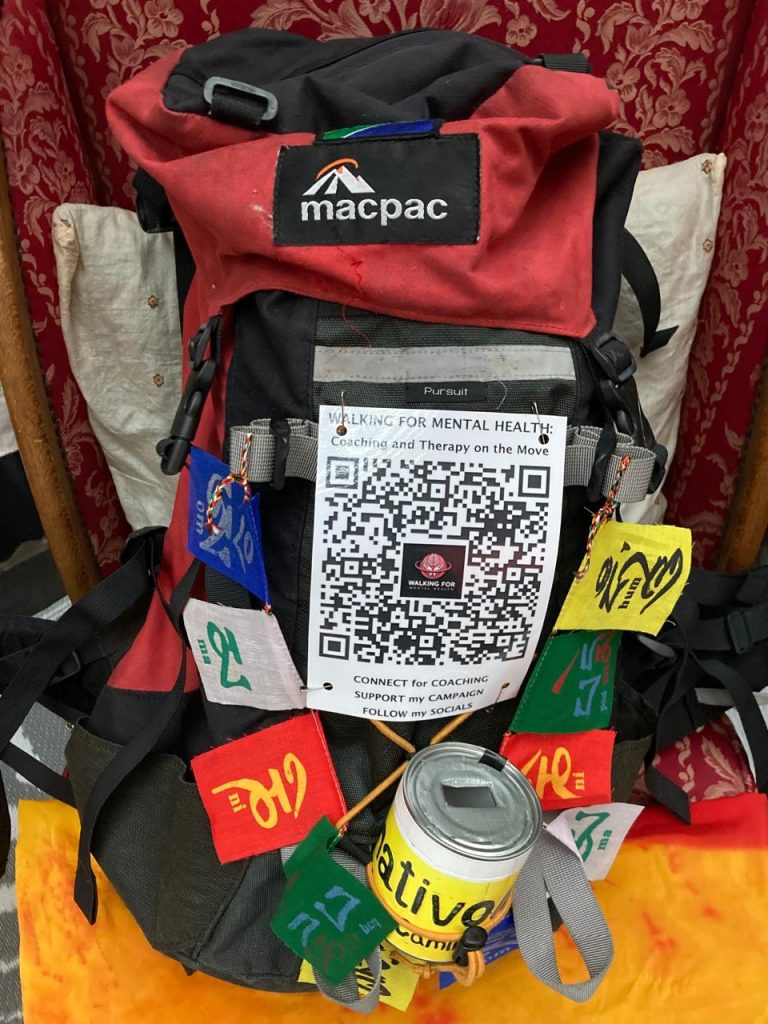
Why Walk, Why Now
Penelope is deeply attuned to people. Clients describe a listener who notices what’s said, what’s unsaid, and what the body is whispering. She speaks frankly about surviving childhood sexual abuse, depression and years of silence that bred shame. Naming her story, she says, loosened its grip—and shaped her vow to create safe, stigma-free spaces where it’s okay not to be okay.
“Life happens in spirals,” she says. “We meet old pain as new selves.”
The Camino called to that vow. One cold evening, watching The Salt Path, the clarity landed:
“I had my answer to all the things that weren’t aligned … I had to walk. Why? Because that’s what I have always done through all the tough times in my life.”

With limited time, she chose a demanding route: Irún to Bilbao along the hilly coast; Santander to Oviedo to join the ancient, forested Primitivo; then a bus to Sevilla or Mérida to meet the Via de la Plata and walk north as far as Ourense—or the calendar allows. Her aim is simple: be a steady presence, a regulated nervous system others can borrow, a companion who will walk as long as it takes.
Therapy on the Move – A Day on the Camino
Days begin in the soft shuffle of headlamps and zips at 5:30am. Penelope with intention, steps into the dark, and walks toward sunrise. Eucalyptus breath drifts from wet groves; salt rides in from the Bay of Biscay; a bakery’s first loaves send warm air into the lane. Way-markers flash yellow; shells clack on backpacks; bells call from unseen chapels. Around 7am she pauses at a lookout to mix her plant-based superfoods—vital for a vegan in rural Spain—before walking on through quiet hours that invite conversation or silence.

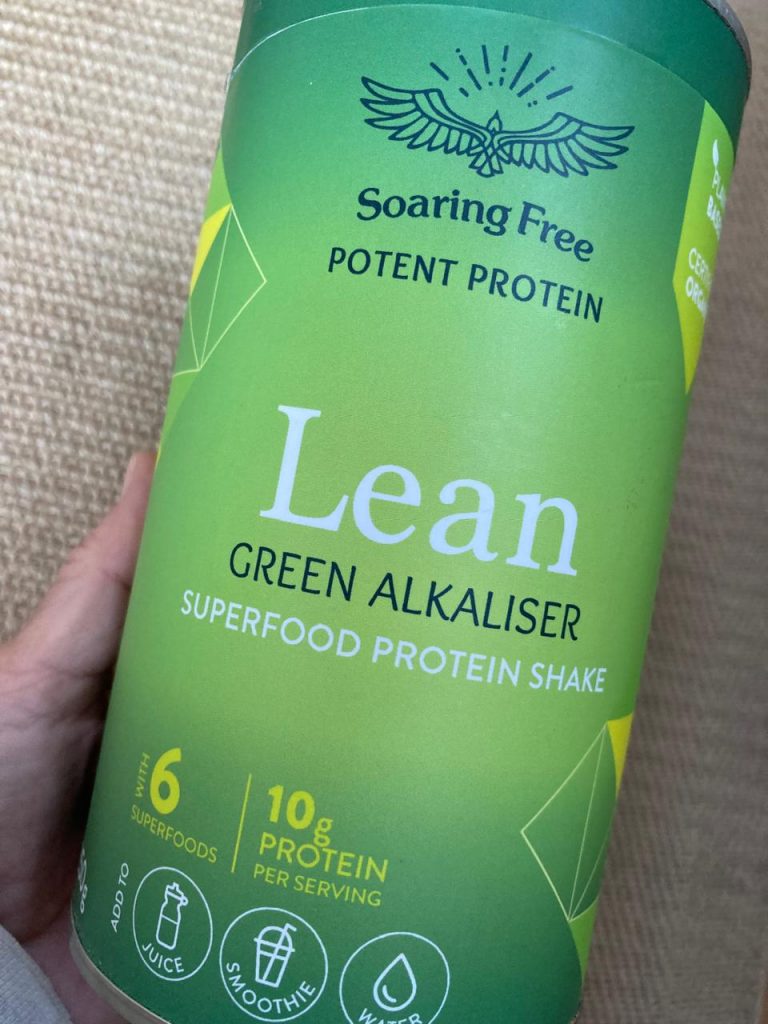
Some days are solitary; some are full of encounters. On her last Camino she met “Susie,” raw after a breakup and tangled in shame. They walked, rested, talked. Movement softened the edges; coaching gave language and tools. They still check in years later.
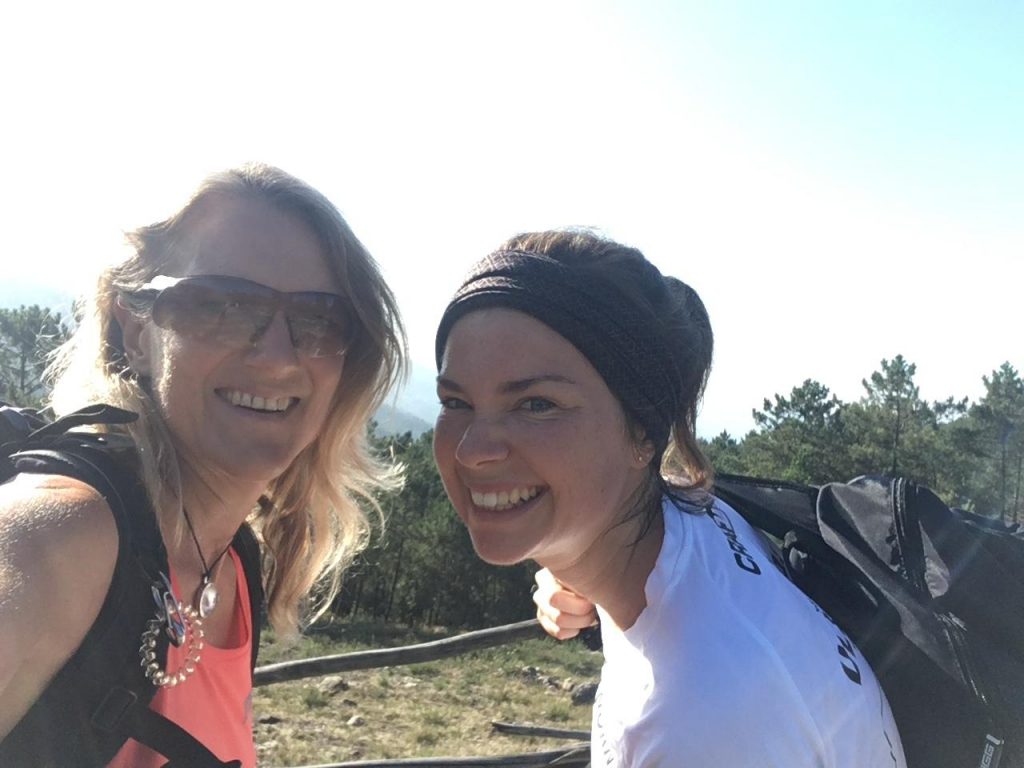
“Connection rewires shame,” Penelope says. “And walking makes truth easier to speak.”
Afternoons end at an albergue—a simple pilgrim hostel—where stories braid over sinks and supper. She never imposes therapy; she offers it. A scan of the QR code sets up a few hours of walk-and-talk the next day, or a quiet craniosacral session for nervous-system regulation. Her pack stays as light as she can manage (about 20% of her body weight), feet are slathered each morning with shea butter and massaged at night with arnica oil, and boundaries hold firm so she can hold others. Short videos on Instagram and YouTube will share the road so supporters can see the work unfold in real time.
Read Penelope’s blog on Camino symbols and what they’ve mean to her here
The Night She Almost Quit
There was a day she pushed close to 50km, much of it uphill through dripping forest. Supplies ran low; her period began; the last 15km offered no water, no café, only mud and roots. By dusk she limped into a hilltop village, only to hear the words every pilgrim dreads: “We’re full.” She slid to the floor and wept—spent, shaking, empty. A caretaker crouched, helped her off with her shoes, found a shower and a cushion, then an extra mattress at the town hall for the night.
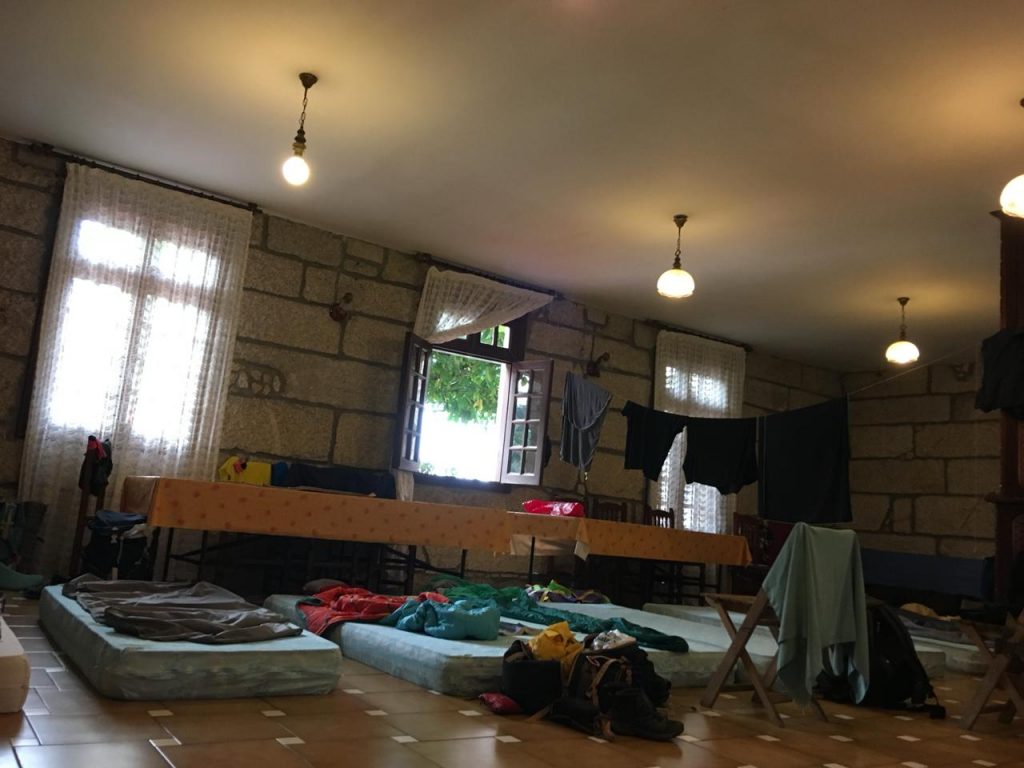
Ten hours of dreamless sleep later, Penelope stepped into a pearly rain, following a mossed aqueduct with strangers who had become a community of the trail. Giving up wasn’t an option; there was only forward. That night is why she trusts this path to hold people when their own strength is gone.
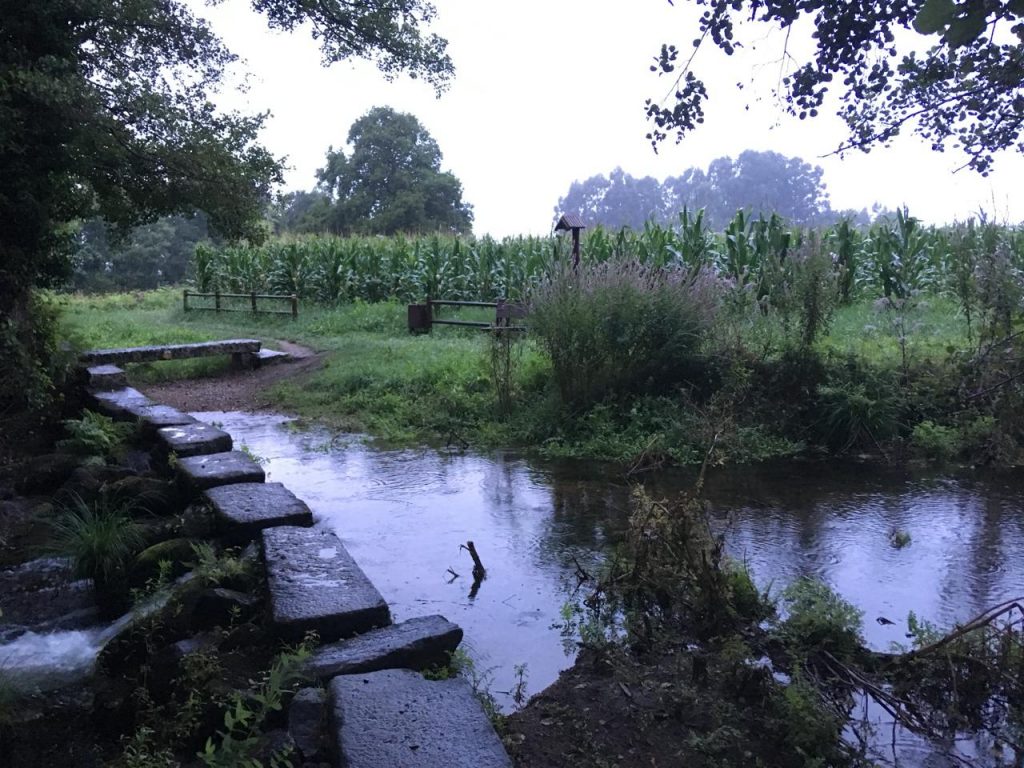
Who she is matters as much as what she’s studied (integral coaching, craniosacral therapy, meditation/yoga, wilderness guiding) or where she’s worked (investment banking and consulting, NGO social development, writing).
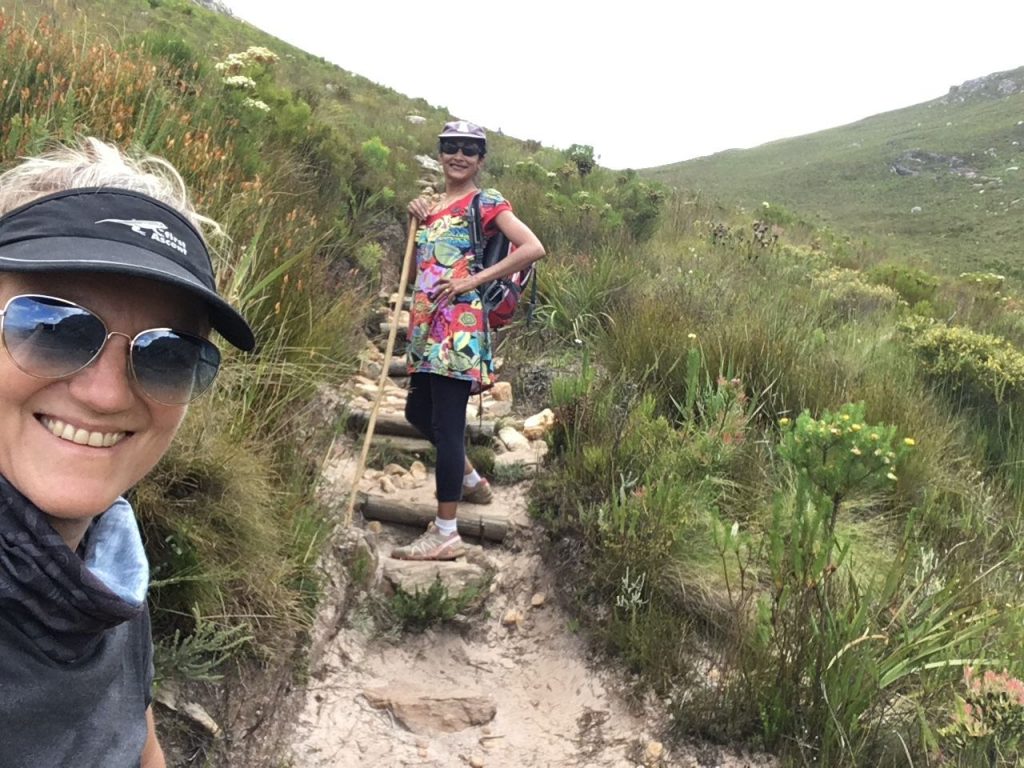
Penelope(left) guiding a small group on a hike
Those chapters expanded her view: trauma is trauma, whether you wear a suit or sleep rough. Her promise on this pilgrimage is to listen without fixing, to sit with the hard, to be the calm in someone else’s storm.
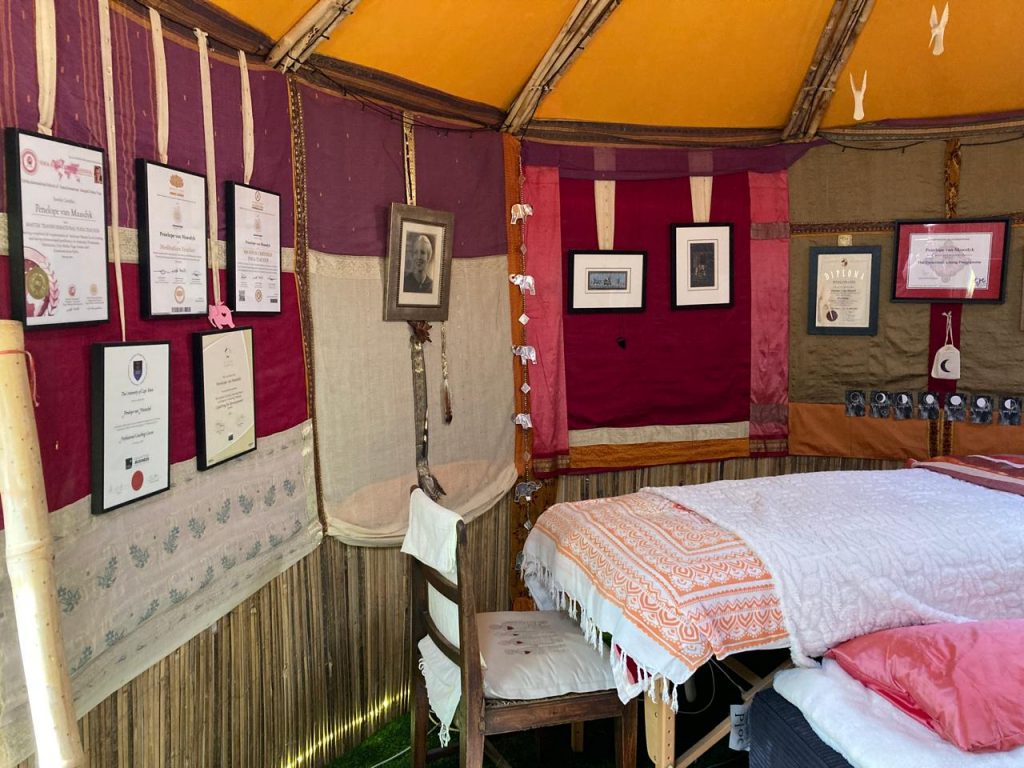
Penelope’s therapy room in my Hout Bay Garden surrounded my Milkwood trees, birds and squirrels
What your support makes possible: a transparent, modest budget—ZAR12,000 flights (already covered offline via therapy-voucher sales); ZAR8,000 gear (ZAR6,500 sponsored); ZAR5,000 internal travel; ZAR20,000 accommodation; ZAR10,000 food & sundries (including a ZAR400 boost from Soaring Free Superfoods). Shout-outs to the friends who funded her Patagonia waterproof jacket and T-Rockets hiking sandals, and to psychologist Rick Hanson, who gifted a course on grief and loss. Every rand buys a bed after 30–40km, a simple meal, a bus between trailheads, and the data so a struggling pilgrim can find her.
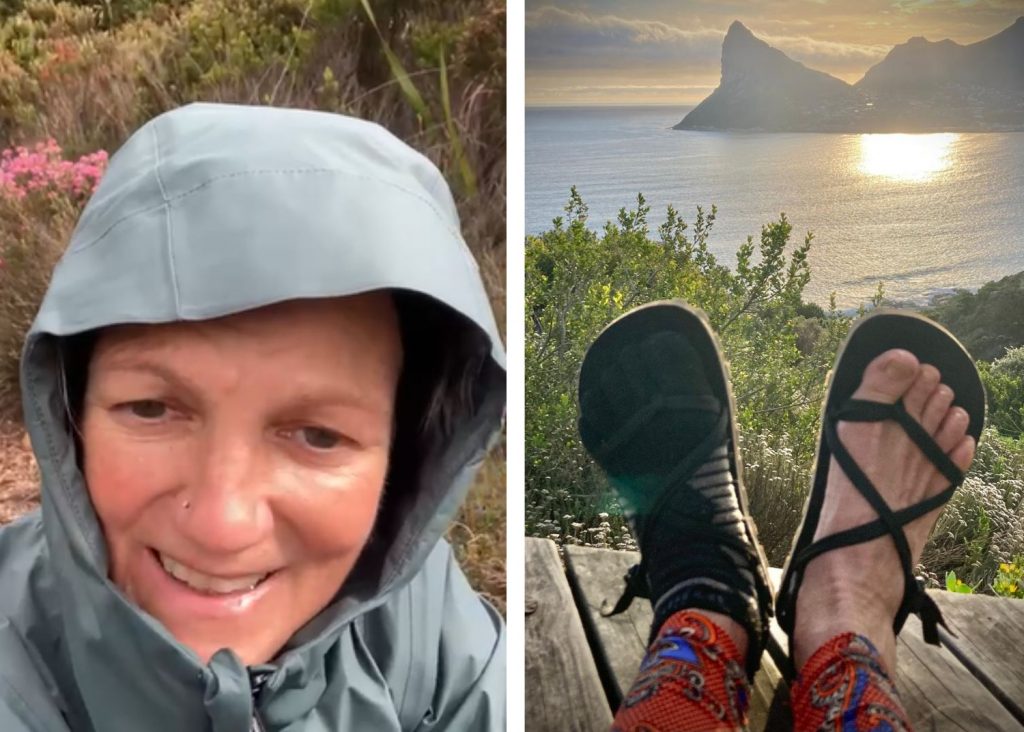
Penelope’s future dreams are big, and she plans to seed monthly Cape Town wellness walks, donation-based community hikes and corporate nature immersions that will subsidise at-risk youth programs—movement medicine for a city that needs it.
If you or someone you love needs support today, please reach out to SADAG Suicide Crisis Helpline: 0800 567 567 (WhatsApp 076 882 2775 / 087 163 2030). You are not alone.
Call to action
To support Penelope van Maasdyk visit their BackaBuddy campaign link here
More information can be found on Penelope’s website where you can find many helpful mental health resources and enquire about booking a session with Penelope.
Please share her story with friends, family, and colleagues—the more people who know, the more companions she’ll meet on the path.
Want impact stories and top crowdfunding tips? Sign up for our newsletter and join our community!

